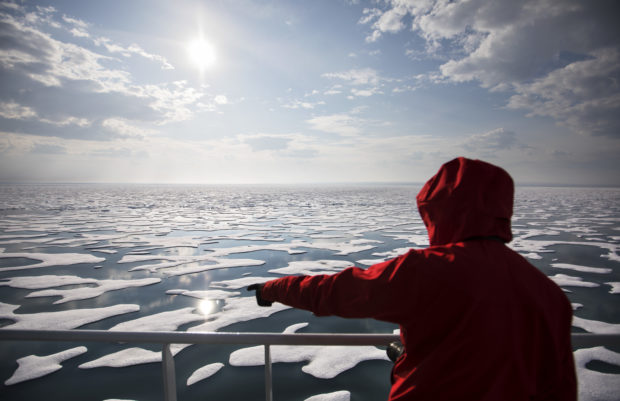
Researcher Tiina Jaaskelainen points out a possible sighting of wildlife aboard the Finnish icebreaker MSV Nordica as it traverses the Northwest Passage through the Canadian Arctic Archipelago, Saturday, July 22, 2017. As the icebreaker entered Victoria Strait, deep inside the Northwest Passage, those onboard looked for a shadow moving in the distance or a flash of pale yellow in the expanse of white that would signal the presence of the world’s largest land predator. (AP Photo/David Goldman)
VICTORIA STRAIT, Nunavut—Global warming is opening up the fabled Northwest Passage, a route through Arctic waters that’s closed to ships for most of the year.
READ: Is Arctic sea ice doomed to disappear?
The Associated Press traveled through the passage on a Finnish icebreaker that achieved the earliest recorded transit from the Pacific to the Atlantic oceans last month.
Together with Arctic researchers, the AP team documented the impact climate change is having on the environment, communities and animals that live in this remote corner of the world.
The changes are indicative of the effects of rising temperatures on the Arctic as a whole. Scientists predict that a warming Arctic will affect lower latitudes, because of the role it plays for global weather.
An account of their 10,000 kilometer (6,200-mile) journey from Vancouver to Nuuk, Greenland, is published Monday. JPV